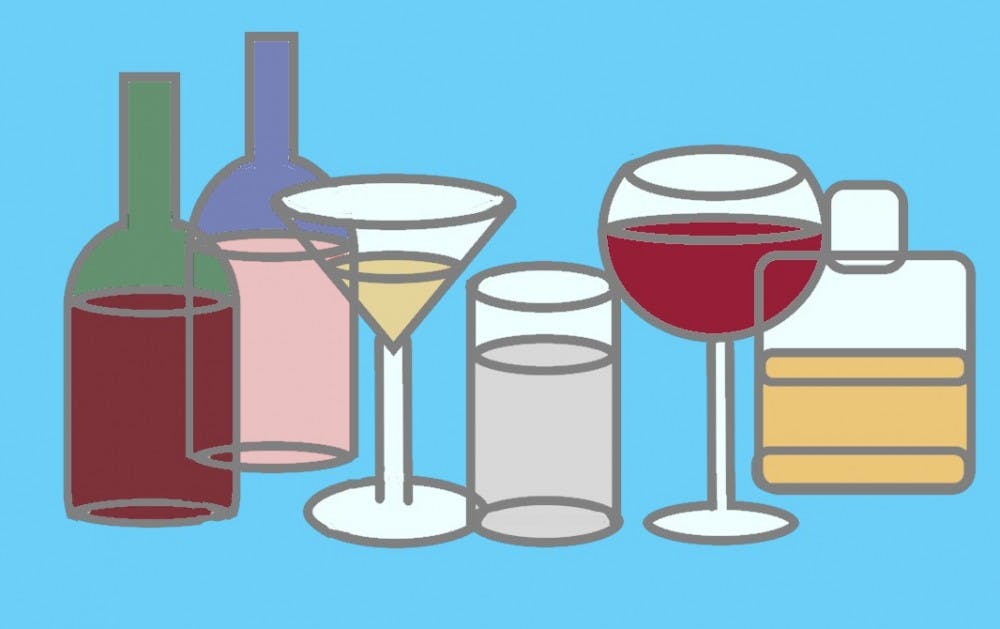What starts as a pattern of casual social drinking can escalate quickly if students don't watch their alcohol intake, and a new ASU program aims to help students control how much they drink.
Brief Alcohol Screening and Intervention of College Students, or BASICS, is an evidence-based program that uses a harm reduction approach to help students who are at risk for alcohol-related problems.
ASU's clinical psychology department launched the BASICS program at the start of the spring semester to help students make better decisions about consuming alcohol.
BASICS focuses on resolving issues that be the result of alcohol abuse, including behavioral issues, poor class attendance, missed assignments, dependency, and sexual assault and violence.
George Parks, a clinical psychologist and co-developer of BASICS, said the program values being realistic over using scare tactics, and takes an empathetic and non-judgmental approach to drinking.
The goal is to convince students to make healthier choices while drinking instead of convincing students to never drink.
“The target in BASICS is to try and reduce the number of episodes of heavy drinking and get students, if they choose to drink, to drink in a less risky and more moderate way, which, by the way, is the most pleasurable way to drink,” he said.
Students can be referred to participate in the BASICS program by ASU housing, ASU police, the dean of students or can participate in the program voluntarily.
“The unique part of BASICS is the specific, nonjudgmental feedback on the students drinking habits and an atmosphere of acceptance and respect,” Parks said.
BASICS motivates students to reduce risky drinking behavior by organizing two individual 50-minute interviews conducted by ASU clinical psychology graduate assistants.
The first interview gathers an understanding of the student's personal history and perception of alcohol use. The second interview is conducted a week later, and students then receive personalized feedback and learn about ways to reduce future risks associated with alcohol use.
Connor Jones, a fourth year doctoral student studying psychology, is one of the assistants who interviews students for the BASICS program.
“I feel really positively about the program. I like that it's non-confrontational, non-judgmental and we really are not trying to preach to you,” Jones said. “Generally, we're just trying to enhance motivation to change and promote healthier choices.”
Parks said BASICS is the most effective alcohol abuse program for college students, therefore making it the most frequently implemented program nationwide.
According to the BASICS fact sheet, 67 percent of students who have received a BASICS intervention resolved their behavior.
“Research is overwhelmingly supportive that when college students get the BASICS program, they reduce their drinking and the harm that alcohol causes them and their friends,” Parks said.
Matthew Meier , associate director of clinical training and a supervisor at the Clinical Psychology Center, oversees the BASICS program at ASU.
Meier said that there have been similar voluntary alcohol intervention counseling services available to students (at ASU?) but not many students seek those out, which is why BASICS takes a different and more effective approach.
“Part of us implementing BASICS now is to try to have a more comprehensive approach to reducing the negative consequences from alcohol misuse,” he said. “It's been shown repeatedly to decrease both the amount of drinking and the negative consequences that result from substance problems."
BASICS brings a new perspective to alcohol abuse prevention by teaching students that if they are going to drink, to do it in a way that maximizes pleasure and minimizes risk.
“Let's use our caring hearts, our compassion and our evidence based practices to help students and others,” Parks said.
Reach the reporter at adehave1@asu.edu and follow @adehave1 on Twitter.
Like The State Press on Facebook and follow @statepress on Twitter.




